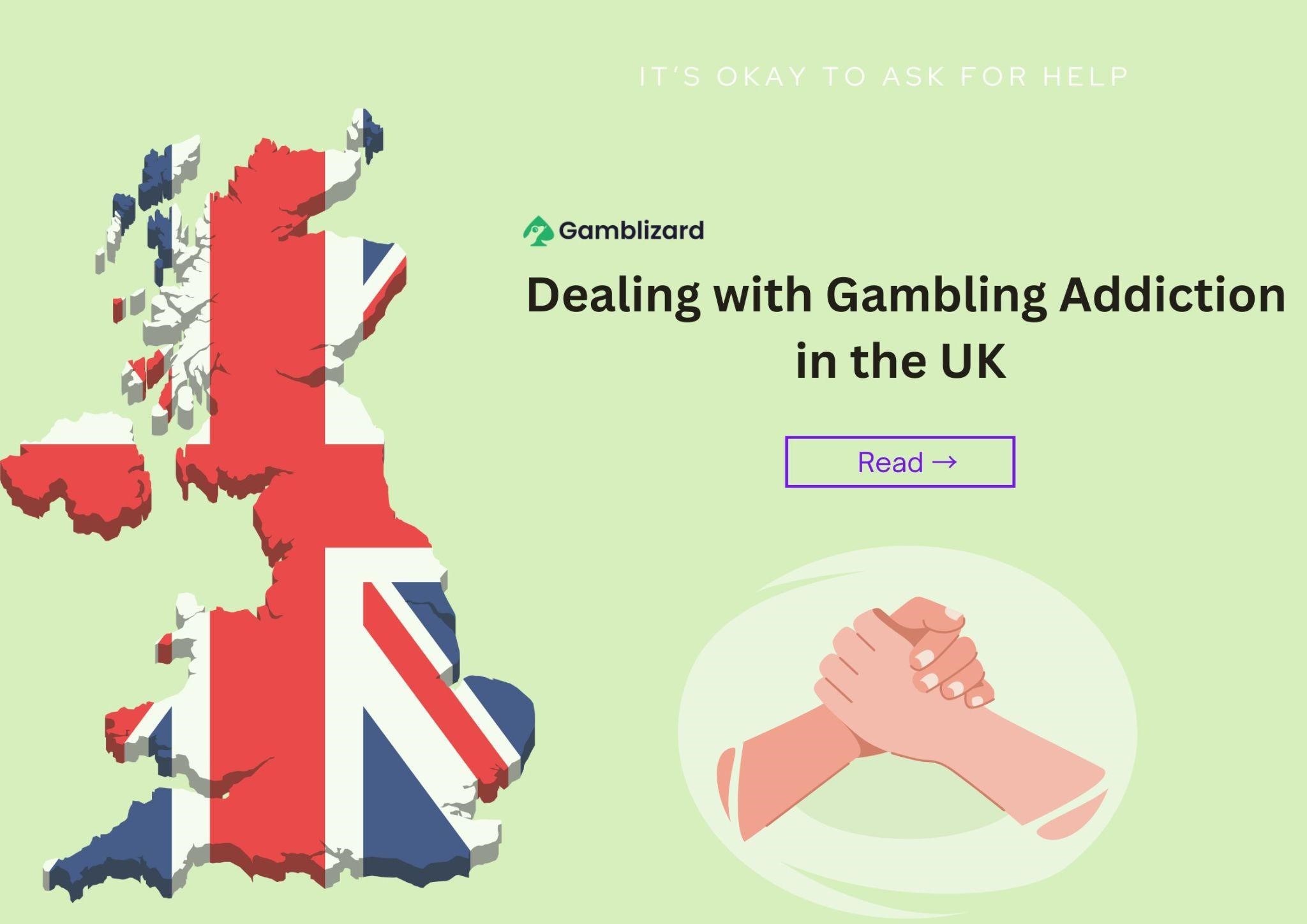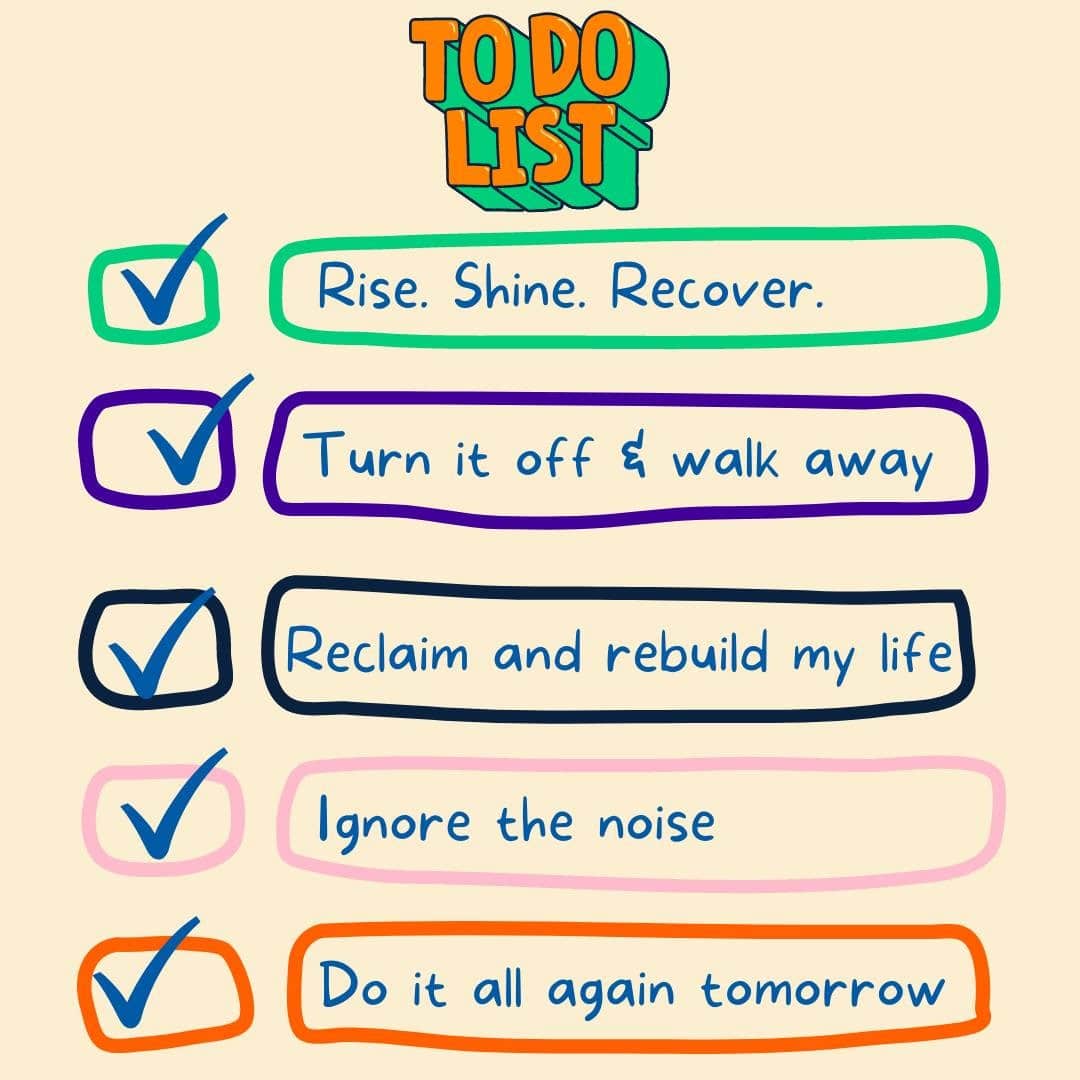
The Authoritative Guide to Successfully Deal with Gambling Addiction in the UK
Despite the popular belief that physical addiction is the only type of dependence, the truth is anybody can get exposed to an unsafe psychological need. Gambling is on the list. Some may think that playing casino games once every few days or weeks isn’t a big deal, but the amount isn’t the issue. What rather matters is how it affects your day-to-day life, as well as the people around you. The decision to refrain from this type of leisure may not be easy for those who notice the symptoms of gambling addiction. But once the first step is made, there are a variety of options—from treatment, such as cognitive behavioural therapy, to blocking gambling sites. We prepared a detailed guide to help you address the problem from multiple angles. Here, you will find a list of organisations that know how to aid the gambling matter of your concern and detailed instructions for self-help.
Resources for Gambling Addiction
The Merriam-Webster dictionary defines ‘addiction’ as:
a compulsive, chronic, physiological or psychological need for a habit-forming substance, behavior, or activity having harmful physical, psychological, or social effects and typically causing well-defined symptoms (such as anxiety, irritability, tremors, or nausea) upon withdrawal or abstinence.
Straight after the explanation, the list of examples records ‘alcohol addiction’, ‘an addiction to prescription painkillers’, ‘drug addictions’, and ‘gambling addiction’. All in the same column.
This example showcases that, apart from being listed in the Diagnostic and Statistical Manual of Mental Disorders by the American Psychiatric Association (also viewed as a disorder in the British context), gambling is perceived as an activity causing dependence on the level of common language. As such, treating any disorder, or inconvenience with medical implications, should start in the due place.
The NHS
Probably one of the best resources you can find is the NHS. Your GP will be able to talk to you about your addiction in more detail, as well as present you with a variety of options for treatment. Most probably, they’ll suggest cognitive behavioural therapy, which is very effective for a variety of disorders, phobias, and addictions.
GamCare
GamCare is one of the biggest UK gambling support organisations, running the National Gambling Helpline (0808 8020 133). The helpline is free and available 24/7, so if you feel that you need help—call it at any time. GamCare also has some self-help resources and bits of advice. They can help you find treatment if you don’t want to go through your GP necessarily.
Gamblers Anonymous
Just as there’s a support group for alcohol addiction, so there’s a peer care group for gambling addiction. Talking with others in the same boat as you can be really helpful. To that end, Gamblers Anonymous organises meetings around the UK, so you can always find one nearby. The pandemic made them shift their model to more of an online grouping, so joining is even easier.
The Gambling Commission
You might not immediately think that this is the case, but the organisation that oversees gambling also provides help for those who are suffering from gambling addiction. They have a long list of useful bodies and resources, including GamCare, so you can find the right to help with your specific problem.
If you feel like you have symptoms of gambling addiction but you’re not sure, it’s always better to double-check with professionals. Under any circumstances, remember—you’re not alone. That’s the idea stressed by Gambling Peer Support Worker and Motivational Speaker at the Southern Health NHS Foundation Trust—and a former gambler himself—Owen:
Thankfully, the body Owen represents is just one of the many. Have a look at the list of services available in the UK from the National Gambling Commission:
| ORGANISATIONS THAT PROVIDE HELP AND ADVICE ON GAMBLING MATTERS | |
|---|---|
| BeGambleAware.org | This is a website that gives advice on gambling responsibly. This means making choices based on all the facts and staying in control of how much time and money you spend. |
| Problem gambling | |
| Central and North West London NHS Foundation Trust Tel: 020 7534 6699 / 6687 |
Treats problem gamblers in England and Wales. It also assesses the needs of their partners and family members, and offers evidence-based treatments and interventions to assist with financial, employment, social, and relationship difficulties. |
| The Christian Centre for Gambling Rehabilitation | A Chinese Christian charity established in 1996 that helps mainly Chinese-speaking problem gamblers to stop and recover from their addiction and its effects. They provide information, advice, and support services which include counselling, money advice, and group meetings to pathological gamblers, their relatives, and friends. |
| Gam-Anon | Supports those affected by another person’s gambling. A fellowship of men and women who are husbands, wives, relatives, or close friends affected by problem gambling. |
| Gamblers Anonymous National helpline number: 02073 843040 |
A fellowship of men and women who have joined together to do something about their gambling problem. And to help other compulsive gamblers do the same. |
| GamBan | GamBan is an easy-to-use application which blocks online gambling on all installed devices. It is available across all platforms and helps people who want to stop gambling from accessing gambling sites and apps. |
| GamBlock | GamBlock helps prevent gambling sites from running on your PC. Once downloaded, users are directed to the GamBlock website when trying to access a gambling website. GamBlock also provides advice to people who have problems controlling their gambling. |
| GamCare National helpline number: 0808 8020133 |
A registered charity that takes a non-judgemental approach to gambling, and a leading authority on the provision of information, advice, and practical help in addressing the social impact of gambling. |
| Gordon Moody Association Tel: 01384 241292 |
Provides residential treatment for severely addicted gamblers, as well as outreach support and internet counselling services. |
| Consumer support | |
| Citizens Advice | Helps people resolve their legal, money, and other problems by providing free information and advice, and by influencing policymakers. |
| Debt support organisations | |
| Money Advice Service | An independent service set up by the government to help people manage their money. |
| Debt Advice Foundation | A UK debt advice charity offering free, confidential support and advice to anyone worried about debt. |
| Debt Support Trust Tel: 0800 058 0226 |
A non-profit debt charity with trained, friendly debt advisors ready to advise you on available debt solutions. |
| National Debtline National helpline number: 08088 084000 |
Provides free confidential and independent advice on how to deal with debt problems. |
| StepChange Debt Charity Tel: 0800 138 1111 |
A debt advice organisation offering free, confidential and impartial debt help to anyone who needs it, available online 24 hours a day. |
| Other support organisations | |
| Counselling Directory | It provides a counselling support network, enabling those in distress to find a counsellor that is close to them and appropriate for their needs. |
| Samaritans UK helpline number: 116 123 |
24-hour-a-day service providing confidential emotional support for people who are experiencing feelings of distress or despair, including those which may lead to suicide. |
Gambling Addiction Self-Help
If you are finding it difficult to ask for help from a GP directly, there are some intermediate self-help steps you can take to get you started.
General Tips
Things to do:
- Limit drinking alcohol when gambling. It can cloud your judgment and affect your decision-making
- Gambling isn’t a way to make money, so don’t look at it that way
- Set firm limits for the amount of time or money you will spend gambling and do your best to stick to them
- Leave your bank cards at home. That way, you aren’t tempted to use them
- Try to take breaks regularly when gambling, otherwise you lose track of time and fall into a deeper rabbit hole
- Try self-exclusion tools.
Image shared by Gordon Moody
Things to not do:
- Do not chase your losses. It might feel like you need to, but if you start noticing yourself doing it, just walk away
- Do not use gambling as a form of escapism. There are better ways to deal with things like stress, anxiety, and depression that aren’t detrimental to your health
- Do not try to kick the addiction cold turkey. Set reasonable goals and do your best to stick to them.
Along with the above, there are other things that you can do and come to terms with.
For starters, facing your feelings is at the top of the list. Something worse than escapism is self-harm and self-depreciation. A lot of people with an addiction may feel a lack of worth and a loss of ego, and therefore spiral down gambling as something deserved, but there’s nothing further from the truth. You should absolutely talk to somebody to help you find the help you need to recover and pull yourself out of the hole.
Similarly, if you lie to your family and friends—stop. Admitting to them (or even just one person) that you have a problem can take some weight off your shoulders and give you the space you need to recover. It’s also just nice having somebody to talk to about your problems, and it can be very emotionally fulfilling.
If you can, don’t put yourself in high-risk situations that may cause you to gamble. Whether this means going to places that have gambling or taking out loans to pay for your debts, remove yourself from the triggers.
Finally, you should try to find some alternative to gambling to keep you away from it. Some examples include:
- Starting a hobby or sport that will occupy your time
- Do a bit of decorating or fixing things around the house. Surely you’ve always wondered if the living room would look nicer if you rearranged things
- Pick up on things where you left off before you started gambling. Maybe you enjoyed going camping or reading books, and that’s stopped since the gambling disorder
- How about trying to reconnect with family and friends? With any addiction, our closest connections tend to drift away, so it would be healthy to drift back and get closer again
- Treat yourself in other ways. Spend money on going to the spa, buy a new board game, or maybe even get a gift for somebody you love.
Managing Your Money
One of the better ways to deal with a gambling addiction is to remove the very thing that enables you: your finances. That doesn’t mean you should give up your life and live in the woods like a hermit. Instead, make sure that it’s not as easy to spend your money on gambling:
- Have somebody you trust to handle your day-to-day money management. This will help to keep you accountable
- Try to carry only a small amount of money. Similarly, you can decrease your withdrawal limit from ATMs (which can be done through your bank)
- Pay bills such as rent, mortgage, and utilities, the moment you get paid from work. This will reduce the likelihood of spending that money on gambling and putting you deeper in debt. Another option is to pay bills in advance by front-loading accounts with money. Some companies allow you to charge your account, and others don’t, so you’ll have to double-check that.
If you feel that none of these smaller steps are helping you reach your treatment goals, then maybe more drastic action needs to be taken in the form of a gambling ban on your bank accounts.
While this service varies from bank to bank, it essentially blocks transactions coming from gambling sites. Sometimes, the banks will have a list of gambling sites, and sometimes, you might have to pick those on your own. If you’ve reached this point and don’t trust yourself to leave one or two gambling sites off a block list, bring a trusted friend or family member with you.
GamBan has a great list of banks blocking gambling transactions, so you can see if yours is there. If you need help, you can always call them and ask; almost all allow you to block transfers from specific retailers. If not, then consider switching to one of these banks. As always, make sure you call them before doing any account transfers to make sure they offer the services you require.
Self-Exclusion
Self-exclusion is essentially what it sounds like—you voluntarily exclude yourself from participating in gambling activities. Of course, you don’t need to do it on your own, and there is a system in place in the UK to help people.
Any company offering gambling has to be part of a multi-operator self-exclusion scheme. This means that you can exclude yourself from most (if not all) gambling operators with just one single request. Once you make the request, the gambling companies must close your accounts and return any funds you have in there.
Additionally, you can make an exclusion agreement with retailers case-by-case if that works better for you.
Ultimately, though, you must remember that a self-exclusion agreement is one that you make for yourself. As such, it’s not enough to rely on gambling retailers to exclude you, especially since sometimes addiction might lead to figuring out some way to gamble.
Blocking Websites on Your Browser
As part of self-exclusion, you might consider blocking websites on your preferred browser as a stepping stone to getting better.
If you’re wondering how to block gambling sites, it is a rather simple procedure, especially if you decide to use special software. For the most part, you’ll likely have to go through a website blocker extension for your particular browser. Block site is a popular website blocker for Firefox, and a similar extension, also called BlockSite, is popular for Chrome.
Of course, just blocking a website individually can be tedious and not necessarily a great solution. As such, you’re probably better off using some form of anti-gambling software.
Blocking Software
Blocking software also goes hand in hand with self-exclusion since, when paired with self-exclusion agreements, it removes your ability to access gambling altogether. While each piece of software works differently, generally, it works on an internal registry of websites to block and/or block access to anything connected to gambling transactions.
Since a lot of gambling tends to occur on our phones, there are dedicated pieces of software, like GamBan, that can block casino sites on Android and iPhone.
- Addiction, noun. The Merriam-Webster Dictionary, https://www.merriam-webster.com/dictionary/addiction#social-links. Accessed on April 5, 2024.
- “Gambling Addiction — Owen’s story of recovery.” YouTube, uploaded by Southern Health NHS Foundation Trust, May 4, 2023, https://www.youtube.com/watch?v=Bf1b3jHmw68. Accessed on April 5, 2024.
- “Gambling Disorder.” Diagnostic And Statistical Manual Of Mental Disorders, Fifth Edition, Text Revision. American Psychiatric Association. Washington, DC: American Psychiatric Association, 2022. [eBook]: chrome-extension://efaidnbmnnnibpcajpcglclefindmkaj/https://www.mredscircleoftrust.com/storage/app/media/DSM%205%20TR.pdf. Accessed on April 5, 2024.
- Gordon Moody. You can reclaim and rebuild your life free from gambling addiction, and we are here to help. Facebook, March 13, 2024, 11:15, https://www.facebook.com/photo/?fbid=823041642967727&set=a.503377438267484. Accessed on April 5, 2024.
- Organisations that can help. Gambling Commission, https://www.gamblingcommission.gov.uk/public-and-players/guide/page/organisations-that-can-help, updated March 6, 2023. Accessed on April 5, 2024.


